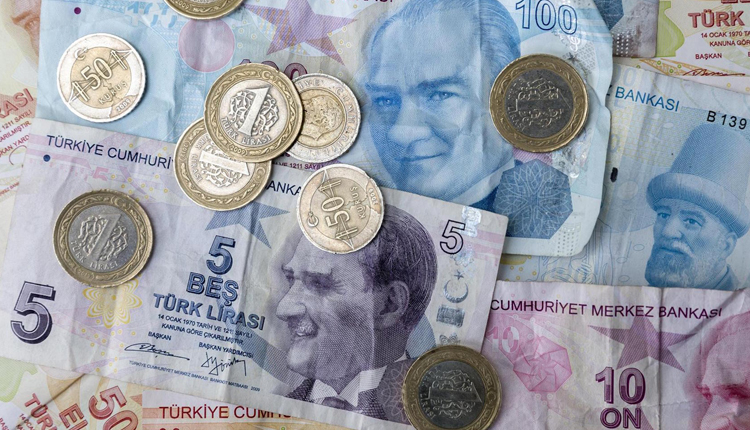Turkey’s hiking of interest rates will not boost confidence in its economy, asset manager Mark Mobius warned on Friday.
Mobius, who is founding partner of Mobius Capital Partners, said he agreed in some ways with Turkish Prime Minister Recep Tayyip Erdogan.
Erdogan on Friday said his patience with rates has “limits” after the central bank on Thursday hiked its benchmark interest rate by 6.25 percentage points to 24 percent. The Turkish lira popped more than 2 percent against the dollar on the news yesterday.
“I agree with Erdogan in some ways because the central banking raising rates is not the solution,” Mobius said on CNBC’s “Street Signs Europe.”
Erdogan said Friday that the Turkish government would put new investments on hold as the country grapples with double-digit inflation and a plummeting currency.
Berat Albayrak, the country’s finance minister, has said he will deliver a medium-term economic plan next week.
“The solution is confidence, gaining confidence of investors — not only foreign investors but domestic investors,” Mobius said. “And that means you’ve got to start policies of balancing the budgets and doing things that give confidence to investors.”
The central bank’s policy move exceeded market expectations, and came amid worries over its independence. Not long before the institution announced its policy decision, Erdogan deplored high interest rates as a “tool of exploitation,” further bolstering those fears. On Friday, the Turkish leader yet again warned on rates, saying “we will see the result of (its) independence.”
Mobius said Turkey should learn from another emerging market country that has come under steep pressure amid its economic downturn — Argentina.
“Raising interest rates… is not going to do the trick, and we’ve seen that around the world by the way,” he said. “Argentina’s a good example where you can raise rates but if people are not confident in what the government is doing, then you’re not going to have an effect.”
Argentina shocked market players last month when it asked the International Monetary Fund for the early release of funds from a $50 billion financing deal. The Argentine peso plunged shortly after.
To assuage short-term concerns over the nosedive in the peso, the country’s central bank lifted interest rates 15 percentage points to 60 percent, promising not to lower them until December at the earliest.
Both Turkey and Argentina have been at the heart of a deep sell-off in emerging market assets over worries that their economic situations could be more than just domestically triggered.
The investment guru also said governments like Turkey’s are resistant to making changes until their economic situation alerts the attention of international authorities. He raised the possibility of the IMF being called to help Turkey with its crisis.
“Our experience is that they will not make changes until their backs are against the wall, and at that time they’ll call on the IMF,” Mobius said.
He said the involvement of the Washington, D.C.-based financial organization could be the “best time” to invest in markets like Turkey as fiscal reforms are announced. “But you’ve got to wait until that happens,” he added.
BBVA chairman: Turkey doesn’t need IMF help
Earlier on Friday, Francisco Gonzalez, group executive chairman of BBVA, said he felt positive about the situation in Turkey following the central bank’s rate hike.
“I feel more reassured about the future because they have taken a big decision (and) surprised the market,” Gonzalez told CNBC’s Nancy Hungerford and Mandy Drury at the annual Singapore Summit.
Gonzalez rubbished any concerns the country would need any IMF assistance to step out of its current economic calamity.
“I don’t think they need the help of the IMF today,” he said. “We will see but if they take a decision in the same way they have taken this one, I don’t think they will need the help of the IMF.”
Turkey is the fifth largest market for the Spanish lender, with 11.5 percent of its profits stemming from the country. The company’s shares hit session highs on Thursday following the central bank’s move.
Other European lenders with exposure to Turkey — including UniCredit, BNP Paribas and ING — also hit session highs. Reports last month suggested the European Central Bank was growing concerned over banks lending significant amounts of money in Turkey.
China could devalue renminbi
Mobius also warned about the potential for China to significantly devalue the renminbi in its ongoing dispute with the U.S. over trade.
“You must remember they have a lot of tools in their armory,” he said, adding that China could allow its currency to spiral downward to as low as 8 yuan against the U.S. dollar. The current dollar exchange rate to the Chinese currency is 6.85 yuan.
“A 20 or 30 percent devaluation in the renminbi will help them continue their exporting and surmount the 20 percent or 25 percent tariff that the U.S. imposes.”
Asked whether it was his opinion that such an event would happen, Mobius responded: “It’s quite possible.”
America is reportedly in the early stages of seeking conciliatory talks with China over trade, as the country nears the implementation of tariffs on $200 billion worth of Chinese goods.
President Donald Trump has said he is willing to hit Beijing with a subsequent round of tariffs targeting an additional $267 billion worth of imports from China.
Source: CNBC
